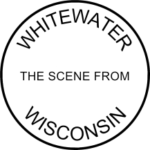 There’s post-election consternation about the amount of bogus news sites on social media. This concern pairs with the worry that fact-checking from major news organizations doesn’t work well when candidates simply lie and refuse either correction or apology.
There’s post-election consternation about the amount of bogus news sites on social media. This concern pairs with the worry that fact-checking from major news organizations doesn’t work well when candidates simply lie and refuse either correction or apology.
This may be a recent national development – at least on this scale – but local news for small towns has been dishonest (mostly by omission), conflicted (so much so that sometimes the same people make and write the news), or simply mediocre (where cheerleading replaces analysis) for years.
(Obvious point: this is a site of commentary, not traditional news reporting. Always has been, always will be. There’s a difference between the two; I’ve never had a problem seeing as much.)
I’d describe the emergence of local fake (or low-quality) news like this: (1) local print publications wrote and reasoned poorly, (2) print began to decline, (3) advertisers grew anxious, (4) these same print publications and their imitators went online, (5) publications still wrote and reasoned poorly, (6) publishers also had trouble making money online, (7) so print had fewer advertisers than ever, (8) remaining readership skewed old and down-market, (9) publishers focused on keeping the low-quality readership that they had left, (10) producing weaker analysis but stronger cheerleading to comfort aged, complacent, or undemanding readers, (11) local digital became a mere imitation of low-quality local print journalism, (12) the local level of self-deception and confusion became so great that local politicians styled themselves as newsmen, with notebooks and voice recorders, (13) community leaders pushed wasteful, counter-productive projects with no legacy-press criticism, (14) as conditions grew worse, community leaders demanded more cheerleading, facts-be-damned, and (15) here we are, with communities facing stagnation and relative decline.
[For a discussion of whether national publications handled the transition to digital properly, consider the exchange about whether investment in digital was a good idea between Jack Shafer (What If the Newspaper Industry Made a Colossal Mistake?) and Steve Buttry (The newspaper industry’s colossal mistake was a defensive digital strategy). I’m with Buttry. The newspaper industry was & has been too cautious about digital, as he describes from his experience:The few times I heard truly creative ideas for reporting news and generating revenue in the digital marketplace, they met with huge skepticism and open resistance. The newspaper industry settled for repurposing and extending editorial content in a marketplace that demanded and rewarded visionary new products.
(Emphasis mine.)]
Poor reasoning, dodgy data, heapings of the insistence that all is well (one’s lying eyes to the contrary) make up the local fake news that small towns have consumed for years.
If one is worried (rightly) that national politicians lie with impunity, it’s fair to say that the residents of small towns across America have experienced, and some have become inured to, political lies and deceptions for many years. The national scene is experiencing, sadly, what’s been true locally a long time.
